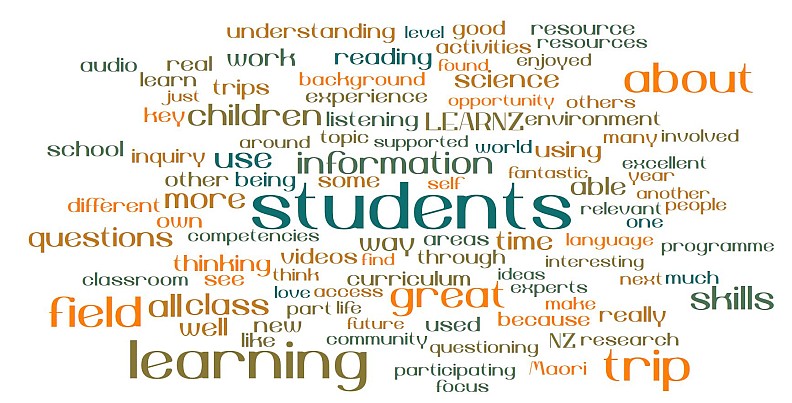You can contact LEARNZ, part of CORE Education, at:
Postal Address:
PO Box 13 678,
Christchurch 8141,
New Zealand

Our students are manly visual learners so through watching the videos they were able to sustain attention longer and retain more information. Also every activity in the field trip, I believe, has in some way reflected the Key Competencies and Values in the Curriculum.
I used it as part of my independent learning and group reading sessions. This field trip showed the children how they can be managing their own safety.
We gained valuable information from the experts. We practised 'Managing Self' while completing the web conference task sheets.
My multi-levelled students thoroughly enjoyed participating in watching the movies and learning through accessing the background pages and quizzes. LEARNZ is a great package of information and up to date footage, that makes usage and planning of the unit very easy for me as a teacher.
Fitted in well with our civil defence week. Engaged the students. Have recommended to colleagues and our whole team will use this next year.
Children engaged with this resource and were excited to learn about disasters in this way. Background pages were a great support to the children's learning as they were easy to use as an independent or group or whole class activity, especially with two reading levels and with the read-aloud option.
Complemented the Key Competencies like self-management and organisation in terms of thinking about your own situation, talking to family about advanced planning etc.
Direct connection to what we were studying in our syndicate, all resources in one place, real people and real context helped engage the children in the learning. All resources are New Zealand appropriate and very suitable for my Year 5&6 class. I felt very supported with instant responses to the emails I sent.
This field trip linked in really well with our Science Inquiry and the real world nature of the field trip, which the children felt connected to and motivated them to self-direct their learning and go further. I have had excellent learning from my children from the LEARNZ Virtual Field Trips. I think they are fantastic.
I always enjoy the LEARNZ Field Trips. They enhance my teaching.
I found the easy background pages appropriate for most students and the ability to have the text read to them was really helpful. Motivating and interesting - my Year 4 students especially enjoyed the videos.
I adapted it to be useful for my Year One class. I concentrated on How to keep ourselves safe during Earthquakes and Tsunamis. It assisted my delivery of interesting authentic material for my students.
It was great to have real-life experiences recounted and for students to be able to communicate with scientists. The "What's the Plan, Stan?" topic was relevant, and seeing the conference call made students even more interested.
The background material was appropriate for my class and we asked a question in the live web conference, which was well answered.
The field trips cater for a number of learning styles providing visual, written and audio information. I love using Learnz with my class. Thank you for providing this fabulous resource.
This trip was extremely uselful as our inquiry in Term Four is "Keeping Ourselves Safe". Insights from the experts were particularly effective for my class.
It was well organised and at the students' levels so no-one was left behind. They now have a good understanding of what to do next in the case of an emergency.
Connects with studets' wider lives, and engages the support of their families, whānau, and communities. Another vehicle that can be used to engage students with like-thinking students across the motu.
A LEARNZ field trip is such a great motivator. The visuals meant that all students could participate in this field trip during ShakeOut.
It made my children more aware that floods, earthquakes and other natural disasters don't just happen to other people in other places but can happen anywhere at anytime. Thank you, I am enjoying learning along with my class!
Totally appropriate for my Y3&4 class, with the children being very engaged with their learning. Love the videos and photos which make the content accessible to all children, no matter their reading ability.
Participation helped students to learn to work together as a team, so they were able to formulate appropriate questions to put to the experts. Really created an awareness of the need to have an emergency plan.
The field trip was appropriate for our class of Yr 3 students and met many aspects of the NZ curriculum. Students are now highly motivated to find out more about hazards/disasters that are likely to impact them at some stage.
Field trips like these help build connected, lifelong, sustainable learners.
It got the class thinking deeply about the actualaties that would happen, particularly in our area of Porirua, even though the field trip was based in Auckland. The class enjoyed being part of a New Zealand-wide group during the audio conferences.